
So if I was to make up a new air box to keep every thing below the bonnet line are there any rules to follow? failing that does any one know of a location to source them from.
Blake

I have been looking at cars that have the top of the bike air box poking through the bonnet but preffir a cleaner look. and recently say this air box.

So if I was to make up a new air box to keep every thing below the bonnet line are there any rules to follow? failing that does any one know of a
location to source them from.
Blake
That's from Mac#1 Motorsports, phone number 0114 251 1016
I can't add anything from personal experience (yet), but I have an MK Busa-engined car about to be deliverd to me here in Spain.
If you check out 'Busa breathing,' you'll find responses to the question I posed, which was: is it necessary to cut a hole in the
bonnet of an MK Indy-R to allow it to breathe properly?'
Aesthetics are important to me, but don't over-ride all other considerations. On balance------ well, see what folk in the thread think.
No bonnet hole for me. (for now).
These are the 3 points i got about building a Airbox were:
1) Size is king - bigger the volume the better....
2) On the inside of the airbox, you want the tb trumpets to end flush with the airbox, you dont want the trumpets sticking 10mm into the airbox.
3) You want the air to speed up in the airbox, so make the centre/middle section larger so the intake air speeds up, then compresses down into the
trumpets.
Sorry if that doesnt make sense..... I'll explain clearer if needed after the west ham match 
Hope it helps.
[Edited on 26/12/11 by eddie99]
See this thread for sources.
http://www.locostbuilders.co.uk/viewthread.php?tid=164202
quote:
Originally posted by eddie99
These are the 3 points i got about building a Airbox were:
1) Size is king - bigger the volume the better....
2) On the inside of the airbox, you want the tb trumpets to end flush with the airbox, you dont want the trumpets sticking 10mm into the airbox.
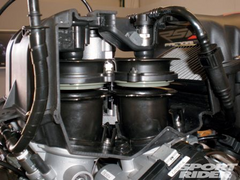


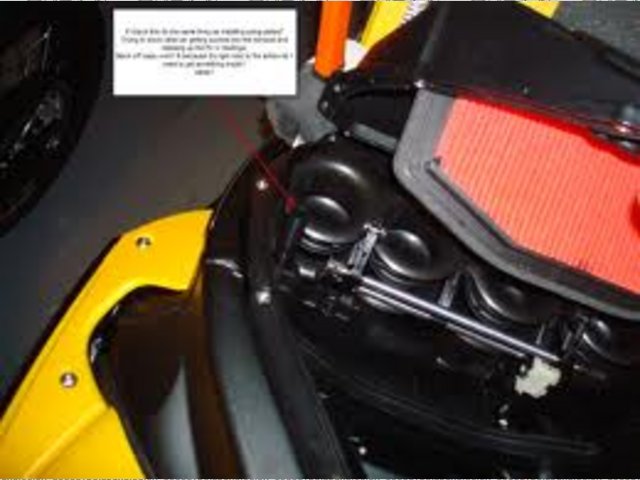
I got that advice of Andy Bates.
Im sure when he is back from holiday he'll come on this post and give the reasoning. However with regards to point 2, its because having the lip
makes air go up the side of the trumpet and causes turbulence where the air is turning around 180 degrees into the entrance of the trumpet...
Disturbing the rest of the air entering the trumpet..
With regards to point 1. Im not sure the exact reasoning but i presume that bike maunfacturers produce them as big as possible within the packaging
restraints.
if you have a full rolled lip on the trumpets , they dont have to be flush .
the picture of that airbox will obviously have a lot of dyno time behind it .
The crashed Mac#1 was built by me, i designed the airbox for the K5 GSXR1000 fitted to that car. The airbox was then fabricated by Bryn at Allyfab, and MAC#1 could possibly have similar in stock
My god that's some handy work.
must of been nothing short of real talent to redesign the front of that car??


quote:
Originally posted by Hector.Brocklebank
quote:
Originally posted by eddie99
1) Size is king - bigger the volume the better....
On point 1 Why ?
I thought the bike manufacturers spent a lot of time and money on developing an optimum "volume" of their airboxes so
"bigger the volume the better" would not really be the optimum, when really it might be "closer to what the manufacturer does the better"
[Edited on 26/12/2011 by Hector.Brocklebank]
quote:
Originally posted by BobM
No, the manufacturers spent a lot of money achieving the best compromise - bigger is better but they've got packaging problems on bikes as the airbox sits 'inside' the fuel tank.
quote:
Originally posted by Hector.Brocklebank
If bigger is better, they would have no air box whatsoever and just have open bell mouths with no air-box, I agree they have packaging constraints, but there must be a reason that they design convoluted style air-boxes to channel air, just look at Kawasaki's ZX14.
I think that there is a lot more science to it than just bigger being better.
quote:
Originally posted by BobM
Agreed.
I think apart from getting cool air they're trying to get positive pressure but without the turbulence associated with it, hence the narrow inlets widening out into the volume of the box designed to smooth out the flow.
There are issues around the pulses of pressure generated by the intake too, not that I know a lot about it. Andy Bates did tell me once of someone who had an aluminium airbox fabricated which was a bit of a disaster as they got a resonance which hit performance big time.
quote:
Originally posted by BobM
quote:
Originally posted by Hector.Brocklebank
quote:
Originally posted by eddie99
1) Size is king - bigger the volume the better....
On point 1 Why ?
I thought the bike manufacturers spent a lot of time and money on developing an optimum "volume" of their airboxes so
"bigger the volume the better" would not really be the optimum, when really it might be "closer to what the manufacturer does the better"
[Edited on 26/12/2011 by Hector.Brocklebank]
No, the manufacturers spent a lot of money achieving the best compromise - bigger is better but they've got packaging problems on bikes as the airbox sits 'inside' the fuel tank.
quote:
Originally posted by :{THC}:YosamiteSam
Err - no - manufacturers build everything to a cost first - they just tell you its performance first
quote:
Originally posted by Hector.Brocklebank
quote:
Originally posted by :{THC}:YosamiteSam
Err - no - manufacturers build everything to a cost first - they just tell you its performance first
that might be true to a point, But....
You cannot deny that even within those constraints the manufacturers are provably eking out more and more power year after year, so they must be doing some sort of development (be it in conjunction with their race departments, it dont really matter) as its still pushing things, and money is still being spent.
quote:
Originally posted by :{THC}:YosamiteSam
think that depends on the car manufacturer and car tho - lol - look at a average car - seems BHP figures are pretty similar as years ago - didnt the 2.0 pinto sierra have around 100bhp? not vastly different - the edge now is in how much more clean and exact the burns are - they have no choice by law they have to clean it up which i guess works hand in hand
Thanks for the feed back guys. Will keep looking round and see what I can see on other cars.
quote:
Originally posted by Hector.Brocklebank
quote:
Originally posted by :{THC}:YosamiteSam
think that depends on the car manufacturer and car tho - lol - look at a average car - seems BHP figures are pretty similar as years ago - didnt the 2.0 pinto sierra have around 100bhp? not vastly different - the edge now is in how much more clean and exact the burns are - they have no choice by law they have to clean it up which i guess works hand in hand
erm we were discussing motorcycle development with regards to the inlet side, and only discussing cars in the guise of a 7 fitted with a motorcycle engine.....
Built this and havent noticed any drop in performance, although I have yet to get it back on the rollers for a definitive answer:-
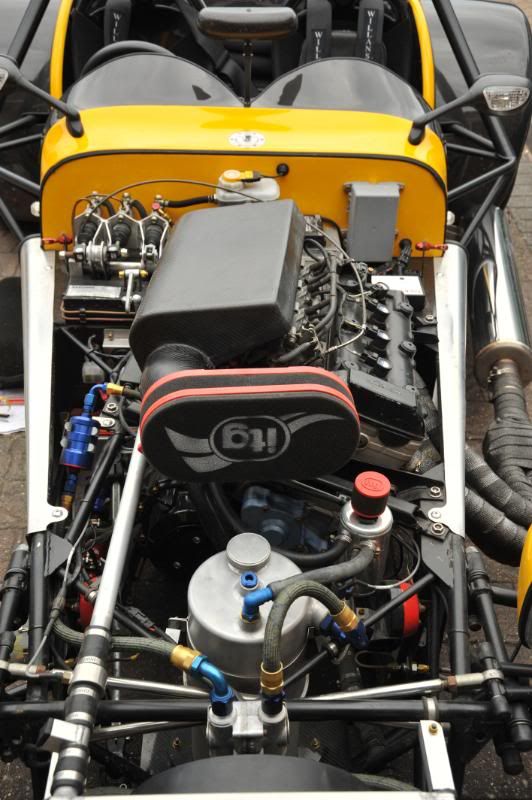
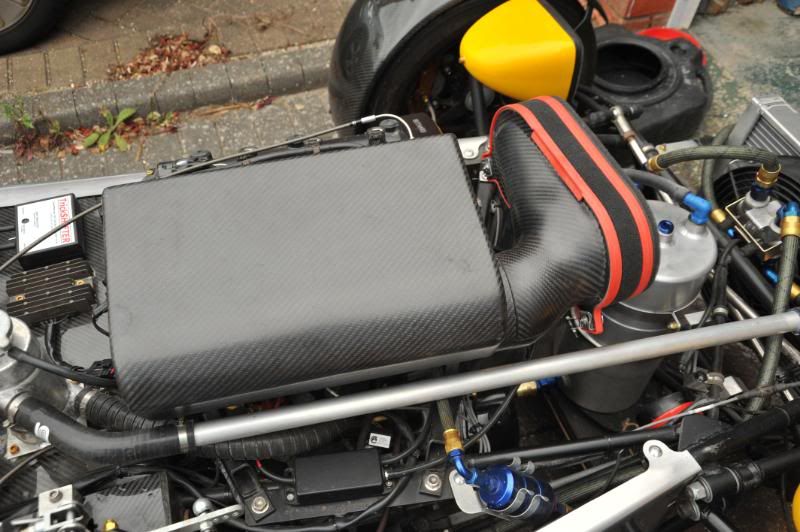
Filter sits square to airflow in the scoop:-
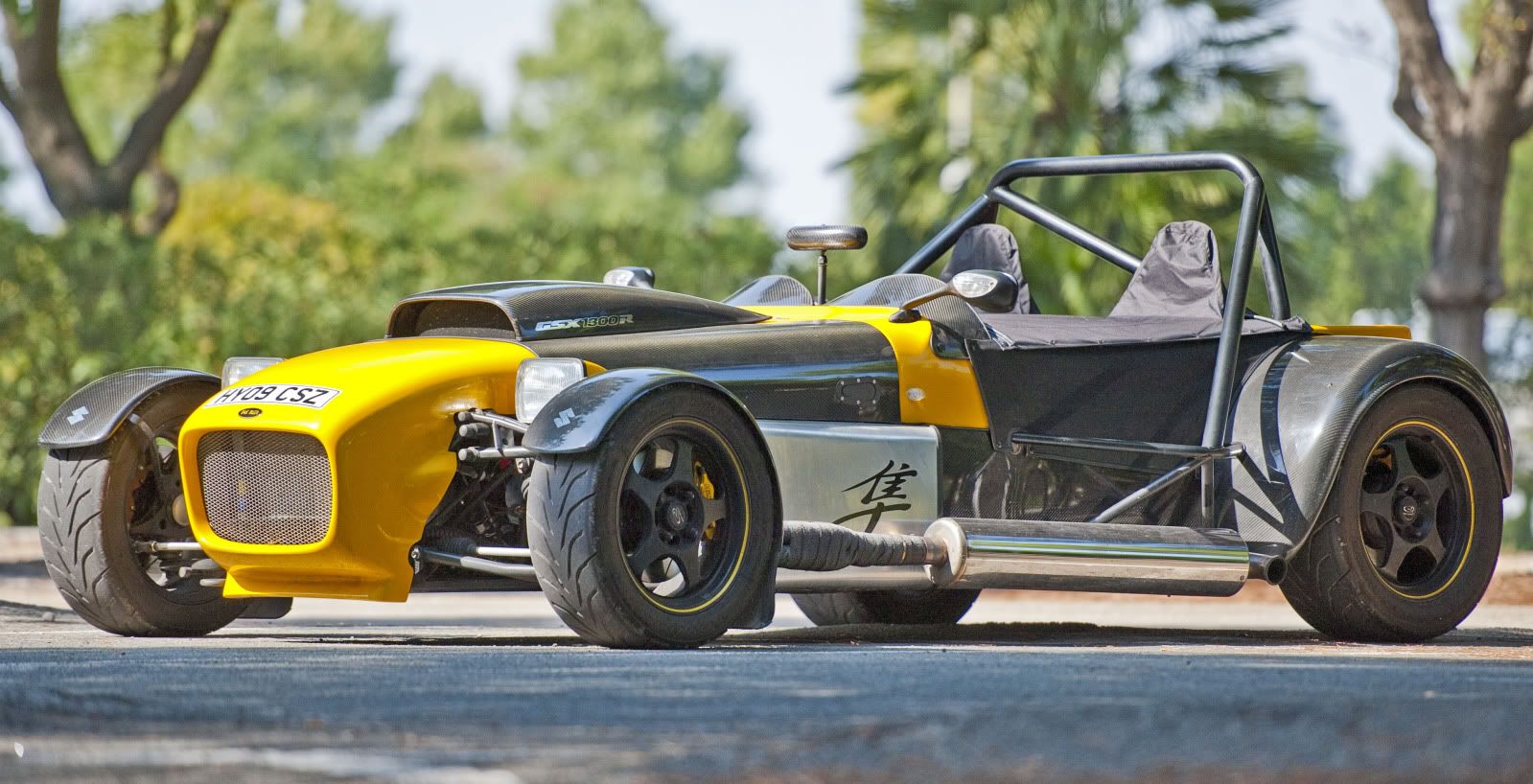
Very very nice car.
How did you make the air box? Have you done a how to?
also where did you get the cover from?
[Edited on 28/12/11 by ceebmoj]
The larger the airbox, the larger the amount of 'still' air you have to draw from and the less effected one cylinder will be by the
preceding one. That mean the least intake induced torque reduction.
It is however possible to 'pulse tune' the intake like you would pulse tune an exhaust to give a high pressure wave within the airbox as the
valve opens at certain engine speeds. This requires a very specific volume and shape of air box. With modern bike engines this is likely to have been
done for you, hence the advantage of the standard box.
quote:
Originally posted by Hector.Brocklebank
quote:
Originally posted by eddie99
These are the 3 points i got about building a Airbox were:
1) Size is king - bigger the volume the better....
2) On the inside of the airbox, you want the tb trumpets to end flush with the airbox, you dont want the trumpets sticking 10mm into the airbox.
On point 1 Why ?
I thought the bike manufacturers spent a lot of time and money on developing an optimum "volume" of their airboxes so
"bigger the volume the better" would not really be the optimum, when really it might be "closer to what the manufacturer does the better"
On point 2 again Why ?
As again most of the bike manufacturers spend shed loads of money and come up with data other than Flush see stolen picture below
Description
Description
Not trying to be funny, just trying to understand the advice being given.
[Edited on 26/12/2011 by Hector.Brocklebank]
How much difference would running without an air box make?
I've never run with a filter on my R1 carbs (on a Xflow) and never had any problems, they're well shielded in the engine bay. It was tuned
withough filters on and put out good power and torque.
I didn't have room to fit a decent depth pipercross filter and only had the room to fit pipercoss socks, which have a high risk of going up in
smoke so I chose to not fit them due to the fire risk and went with unfiltered carbs. Done over 6000 miles now like this and got no issues.
Probably a different scenario for a higher revving bike engine?
Just to throw some other data and my beliefs into the mix.
Here are a couple of photos of sidecars with airboxes. They could have used the factory airbox, but haven't.
In these cases the volume doesn't suffer the same restrictions as it does in the bike install (fuel tank in different location).

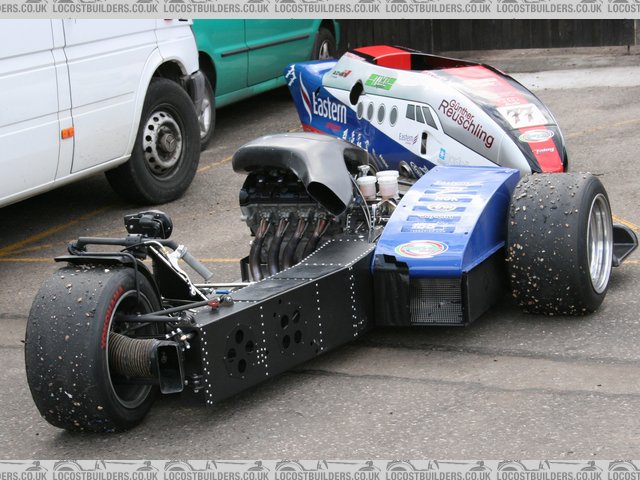
air_box_large
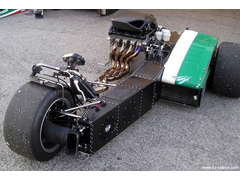

Description
Having gone through this process my rules would be:
1) inlet to allow cool air into engine (cool air is dense air), ram air isn't worth much (I've measured 1 or 2% with a forward oriented
intake). Inlet tube of 70mm is big enough up to 200bhp.
2) volume large enough to allow air to slow down (minimising unwanted pulsation effects, momentum effects, and to keep the sound down), in practice
10litres isn't a bad target.
3) insulated to prevent the airbox getting hot and hence warming the inlet charge, warm inlet air is bad news.
4) don't worry about Helmholtz resonance because it is too complicated to get right and if you gain at one RPM range then you lose at another.
5) install an air filter, with a standard panel filter I see no measurable pressure drop across it.
I have no doubt the manufacturers invest some effort on this, but their design goals are different (cost, packaging, rideability, noise limits) so
their solution will be good but are very unlikely to be optimal.
quote:
Originally posted by ceebmoj
Very very nice car.
How did you make the air box? Have you done a how to?
also where did you get the cover from?
[Edited on 28/12/11 by ceebmoj]
quote:
Originally posted by iiyama
Thank you!
Airbox is made from pre-preg carbon, mould was made on the car although the box should fit any engine. Reason for making it was to try and reduce intake noise. This goal would have appeared to have been achieved. As with the power though, I need to check this with instrumentation.
Cover? As in the tonneau? Had it made by Soft Bits for Sevens.
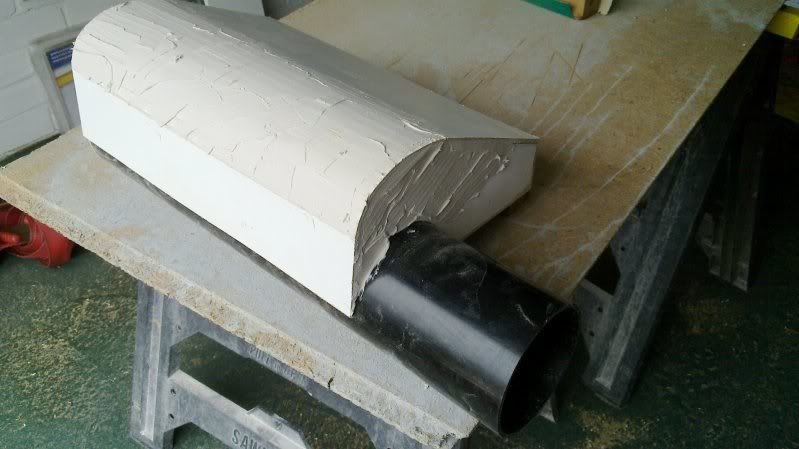
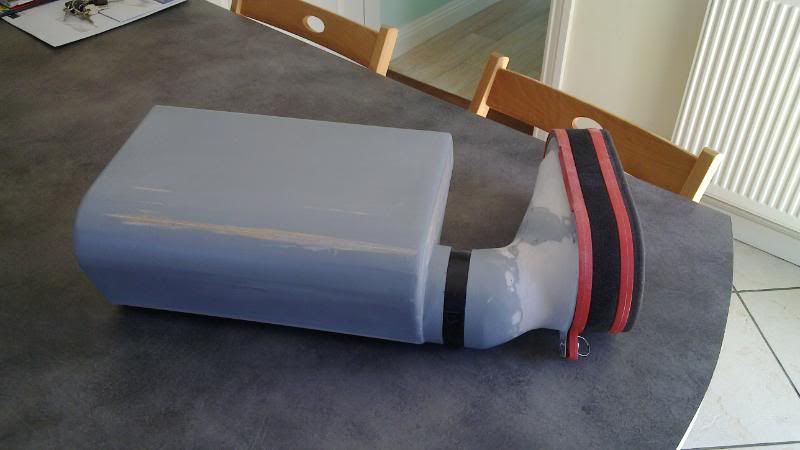
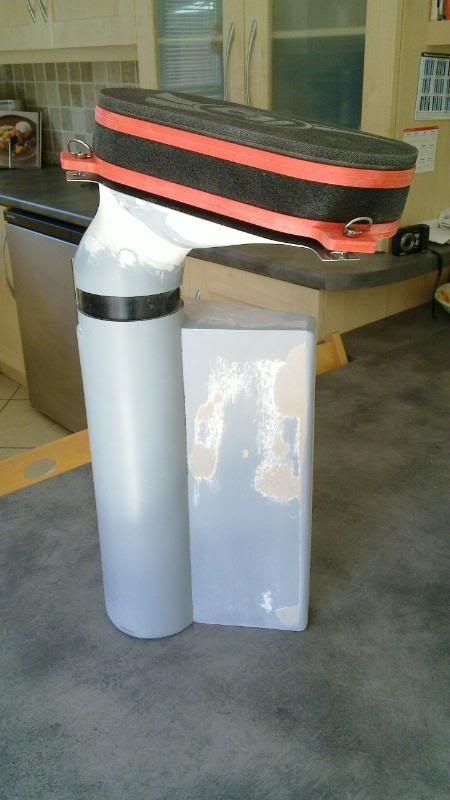
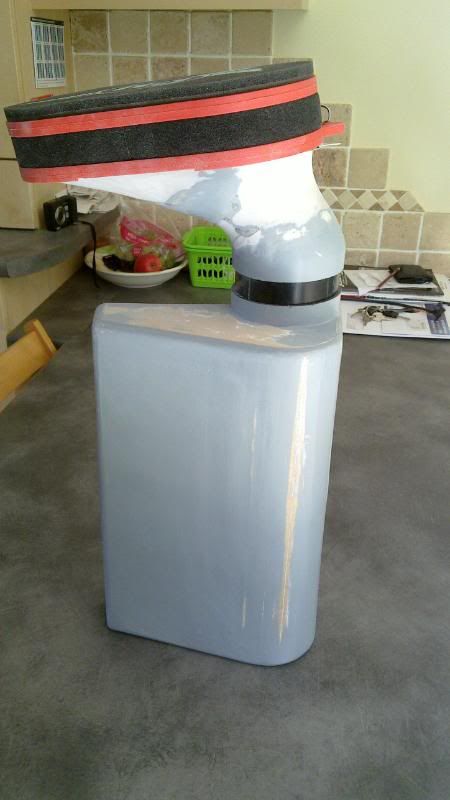
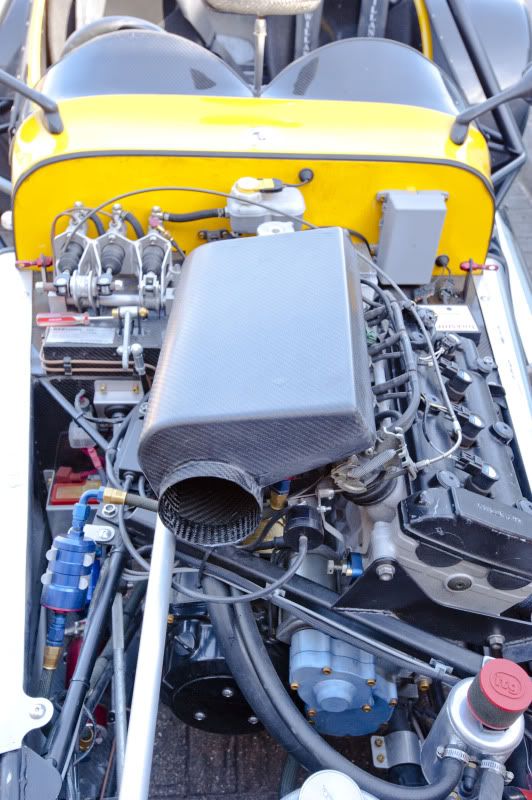
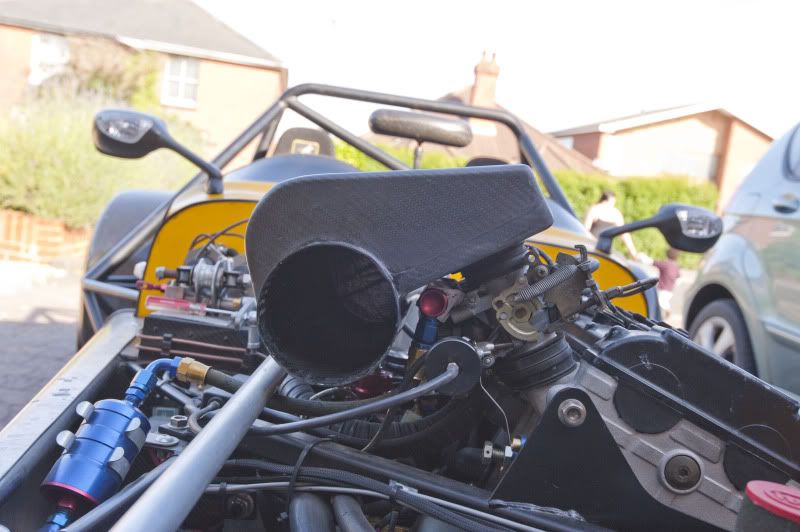
Could quite possibly make more boxes, although the front end, (where the filter is), is bespoke to my car.
quote:
Originally posted by iiyama
Could quite possibly make more boxes, although the front end, (where the filter is), is bespoke to my car.
Contact Marcus at www.creativecarbon.com as the mould is at his workshop. Let me know how you get on!